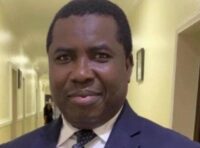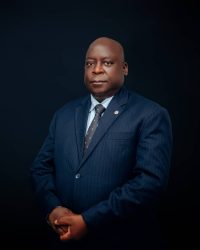The President and Chairman of the Board of Directors, Afreximbank Benedict Oramah, has disclosed that the bank has mobilized over $250 billion into Africa over the past 32 years, just as he also described the bank’s journey as one of resilience, determination, and transformation.
Oramah made this disclosure while speaking at the ongoing 32nd Annual Meetings of the African Export-Import Bank (Afreximbank) in Abuja, Nigeria’s seat of power.
According to him, the bank—once regarded as an institution with an uncertain future—has grown into one of Africa’s most influential multilateral financial institutions.
“This year’s Annual Meetings are organised under the theme ‘Building the Future on Decades of Resilience’ in recognition of the remarkable journey of Afreximbank. From humble beginnings, we have defied doubt and built an institution that has empowered neglected industries, provided lifelines during crises—from COVID-19 to commodity shocks and broken supply chains—and channelled more than $250 billion into Africa’s development,” Oramah said in his welcome address
Oramah spoke on the symbolic return of the bank’s Annual Meetings to Abuja, where the very first meeting was held in 1993. “This marks a memorable homecoming,” he noted, adding that the city has played a significant role in the bank’s evolution and successes over the decades.
“The unwavering support from the Federal Government of Nigeria, especially in responding to capital calls and removing regulatory bottlenecks, has enabled us to operate effectively in Nigeria and the wider West African region,” he said.
The 32nd edition of the Annual Meetings also marks a transition period as the bank prepares to welcome new leadership. Oramah highlighted how his 32 years of service at the bank had provided deep insight into the development challenges confronting the continent, the global plight of Africans, and the immense economic opportunities that remain untapped. “This event is not only a celebration of what we have achieved but also a turning point that will shape both the future of the bank and of Africa,” he said.
Oramah pointed to a global backdrop of deglobalisation, rising protectionism, and geopolitical instability, just as he also argued that such times call for Africa to chart a path that is “unapologetically African and globally impactful.”
Those who gathered at the meeting are policymakers, development finance institutions, private sector players, civil society groups, and academia, the meetings are structured to examine Africa’s development trajectory and reposition the continent amid growing global uncertainties.









